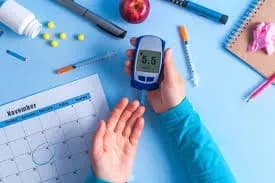All information about Institute of Mental Health - Bach Mai Hospital
By Van Vu
15/11/2024
Institute of Mental Health - Bach Mai Hospital, one of the leading prestigious facilities in examination, treatment and in-depth research on mental health in our country.

1. General introduction to the Institute of Mental Health - Bach Mai Hospital
Institute of Mental Health - Bach Mai Hospital, one of the leading prestigious facilities in examination, treatment and in-depth research on mental health in our country.
In a modernized society with a fast pace of life, there is too much pressure causing many people to have mental health problems. The Mental Health Institute of Bach Mai Hospital receives many patients every day for examination and treatment.
The ongoing Covid-19 pandemic is affecting the mental health of many people. The need for examination, consultation and treatment with a psychiatrist is increasing.
To help readers understand more about the Institute of Mental Health - Bach Mai Hospital, below is the necessary information.
2. Institute of Mental Health - Bach Mai Hospital
The predecessor was the Department of Psychiatry - Bach Mai Hospital. In 1991, the Institute of Mental Health - Bach Mai Hospital was established.
The Institute of Mental Health is a gathering place for leading experts in the field of psychiatry, a reliable address for undergraduate and postgraduate training in psychiatry nationwide.
In addition, the Institute regularly cooperates with mass media channels to carry out mental health propaganda for the community.
With a total of 187 beds, the Institute annually admits more than 3,000 patients for inpatient treatment with acute mental disorders and maintains outpatient follow-up for more than 50,000 patients.
3. Address and phone number of Department of Psychiatry - Bach Mai Hospital
- Address: No. 78 Giai Phong, Dong Da, Hanoi
- Phone number: 024 3576 5344
- Website: www.nimh.gov.vn
4. Location of Psychiatry Department - Bach Mai Hospital: Building T4, T5, T6 Institute of Mental Health - Bach Mai Hospital
This building is located near the side gate of Bach Mai Hospital (gate on Phuong Mai Street). It is located next to the Central Dermatology Hospital. For easy access, patients can enter from this gate.
5. Examination time of Psychiatry Department - Bach Mai Hospital
The Institute of Mental Health examines patients every day of the week from Monday to Sunday:
- Monday - Friday: 6:50 am - 4:00 pm
- Saturday - Sunday: 7:30 - 16:00
If arriving outside of the above hours, patients should register for examination at the Child Psychiatric Treatment Room (building T5) of the Institute of Mental Health.
In addition, patients can also register for examination at the Examination Department or Examination Department upon request of Bach Mai Hospital for mental health examination.
6. Board of Directors of the Institute of Mental Health - Bach Mai Hospital
- Director: Dr. Nguyen Doan Phuong (from 2015 to present)
- Deputy Director:
- Dr. Nguyen Van Dung, MD, PhD
- Dr. Nguyen Van Tuan
- BSCK II Nguyen Minh Tuan
- Dr. Tran Thi Ha An
7. Functional rooms in the Institute of Mental Health
Currently, Institute of Mental Health - Bach Mai Hospital There are 9 functional departments responsible for examining and treating mental illnesses.
7.1. Department of Elderly Mental Health Treatment
- Location: 1st floor, building T6 - Institute of Mental Health
- Head of Department: Master, Doctor Tran Thi Ha An (from 2015 to present)
Clinic, consultation and inpatient treatment for patients aged 60 and over with geriatric mental disorders such as depression, psychosis, dementia...
7.2. Addiction Treatment Department
- Location: 3rd floor, building T4 - Institute of Mental Health
- Phone: 024.38693731, extension 6655
- Head of Department: Master, Doctor Le Thi Thu Ha
The full name of the Addiction Treatment Department is the Voluntary Detoxification and Relapse Prevention Treatment Department, with the following tasks:
- Counseling and treatment for drug addiction, alcohol addiction, game addiction...
- Inpatient treatment for drug and alcohol addiction
- Anti-relapse treatment
7.3. Clinical Psychology Department
- Location: 2nd Floor, Building T6, Institute of Mental Health
- Head of Department: Dr. Vu Thy Cam
7.4. The Clinical Psychology Department has the following functions and tasks:
- Psychosocial rehabilitation for patients with mental disorders
- Psychological counseling and psychotherapy (relaxation therapy, group therapy...) for patients with stress-related disorders
- Counseling when patients are discharged from hospital, helping patients adapt and reintegrate into the community
7.5. Child Psychiatric Treatment Room
- Location: Building T5, Institute of Mental Health
- Phone: 024.38693731 - extension: 6651
- Head of Department: Master, Doctor Le Cong Thien (from December 2008 to present)
7.6. Treatment of child mental disorders:
- Attention deficit hyperactivity disorder: children are naughty, have difficulty concentrating, are very active.....
- Autism: quiet, no contact, no interest in surroundings....
- Behavioral disorders, emotional disorders, emotional and behavioral disorders
- Mental retardation
- Developmental disorders, learning related
- Tic Disorder
- Other disorders: bedwetting...
Treatment of organic mental disorders and psychiatric emergencies: depression, anxiety, dementia, insomnia, difficulty controlling emotions... after suffering from physical diseases such as: myocardial infarction, high blood pressure, diabetes, systemic lupus erythematosus, cerebrovascular accident, systemic diseases...
7.7. Stress-related Disorders Treatment Room
- Location: 1st Floor, Building T6, Institute of Mental Health
- Phone: 024 38693731, extension 6653
- Head of Department: Dr. Duong Minh Tam (from 2007 to present)
7.8. Stress-related Disorders Treatment Department with the following functions and tasks:
- Examination and inpatient treatment of patients with mental disorders, psychogenic disorders related to stress and somatization, behavioral syndromes associated with physiological disorders and physical factors.
7.9. Department of Emotional Disorders Treatment
- Location: 2nd Floor, Building T4, Institute of Mental Health
- Phone: 024 38693731 extension 6655
- Head of Department: Master, Doctor Tran Nguyen Ngoc (from 2012 to present)
The Emotional Disorders Treatment Department examines and provides inpatient treatment for female patients with mental disorders aged 16-60.
7.10. Schizophrenia Treatment Room
- Location: 1st floor, building T4, Institute of Mental Health
- Phone: 024 38693731 extension: 6654
- Head of Department: Master, BSCK II Nguyen Van Dung (from 2008 to present)
The department examines and treats inpatients with mental disorders including schizophrenia, schizotypal disorders and paranoid disorders.
7.11. Functional Exploration Room
- Location: 2nd Floor, Building T6, Institute of Mental Health
- Head of Department: Master, Doctor Tran Thi Ha An
In treatment, the department performs electroencephalography, cerebral blood flow and psychological testing techniques to support diagnosis and evaluate treatment effectiveness.
7.12. Outpatient Clinic, Consultation and Treatment
- Location: 1st Floor, Building T6, Institute of Mental Health
- Phone: 024 38693731 extension 6653
- Head of Department - Dr. Nguyen Van Tuan
7.13. Outpatient Clinic, Consultation and Treatment with the following functions and tasks:
- Examination and outpatient treatment of patients with mental disorders
- Mental health counseling for patients and their families
- Perform EEG, Video EEG, Cerebral Blood Flow, and Electrocardiogram techniques to support diagnosis and treatment
- Transcranial magnetic stimulation (TMS) in the treatment of depressed patients.
8. Some good doctors at the Mental Health Institute
8.1. Dr. Nguyen Doan Phuong
- Director of the Institute of Mental Health
- President of the Mental Health Institute Union
- Secretary of the Party Cell of the Institute of Mental Health (from 2015 to present)
8.2. Dr., BSCK II Nguyen Van Dung
- Deputy Director of the Institute of Mental Health
- Head of Schizophrenia Treatment Department
8.3. Dr. Nguyen Van Tuan
- Deputy Director of the Institute of Mental Health
- Head of Department of Psychiatry - Hanoi Medical University
- Head of Outpatient Examination, Consultation & Treatment Department
8.4. BSCK II Nguyen Minh Tuan
- Deputy Director of the Institute of Mental Health
- Lecturer, Department of Psychiatry - Hanoi Medical University
- Former Head of Drug Addiction Treatment Research Unit (1995 -2007)
8.5. Dr. Tran Thi Ha An
- Deputy Director - Institute of Mental Health
- Treating Doctor, Institute of Mental Health, Bach Mai Hospital (February 2007 – 2009)
8.6. Dr. Duong Minh Tam
- Head of Stress-Related Disorders Treatment Department
- Lecturer at Hanoi Medical University
8.7. Master, Doctor Le Thi Thu Ha
- Head of Addiction Treatment Department
8.8. Dr. Vu Thy Cam
- Head of Clinical Psychology
8.9. Associate Professor, Dr. Nguyen Kim Viet
- Former Director of the Institute of Mental Health (2011 - 2015)
- Former Head of Department of Psychiatry - Hanoi Medical University
- Deputy Director of the Central Institute of Forensic Psychiatry
- Vice President of Vietnam Psychiatric Association
8.10. Associate Professor, Dr. Tran Huu Binh
- Former Director of the Institute of Mental Health
- Former Head of Addiction Treatment Department
9. Institute of Mental Health - Bach Mai Hospital
Address: Building T4, T5 and T6, No. 78 Giai Phong, Phuong Mai, Dong Da District, Hanoi
Hours of Operation:
- Monday - Friday: 6:50 am - 4:00 pm
- Saturday - Sunday: 7:30 - 16:00
The Institute of Mental Health under Bach Mai Hospital was established under Decision No. 784/QD-BYT of the Ministry of Health since 1991. Through a long journey of operation, the Institute of Mental Health - Bach Mai Hospital has increasingly improved the quality of medical care services with a team of good psychiatrists and psychologists.
If you are a foreigner who needs to use medical services while traveling in Vietnam, your medical benefits will be supported as Vietnamese citizens. To ensure your medical benefits are best guaranteed, you should go with an interpreter to exchange and receive information fully and effectively.
© Copyright of articles belongs to the author group of iguide.ai or cited as required.
Articles by iguide.ai For reference only, not a substitute for diagnosis or treatment.
https://docs.google.com/document/d/1SFroLCkBmNWewMIxT2Uo9_gjACIjs_hwsmHDNJKK5zs/edit?usp=sharing
How to recognize early signs of diabetes
By Van Vu
02/11/2024
Diabetes mellitus, commonly known as diabetes, is a metabolic disorder in which the body cannot tolerate glucose, leading to higher than normal blood sugar levels.
When traveling in Hanoi Vietnam where to examine and treat diabetes?
By Van Vu
02/11/2024
Diabetes is a disease that requires long-term treatment, with a treatment regimen appropriate to each person's condition. Patients should go to hospitals and clinics with expertise in Diabetes to be tested, diagnosed and properly treated.
Pocket notes when traveling to Vietnam for people with diabetes
By Van Vu
03/11/2024
To have a perfect trip, people with diabetes will need to prepare more carefully than people with normal health. So what are the things that people with diabetes need to ensure for a perfect trip? Here are some notes when traveling to Vietnam for people with diabetes.
Guidelines for diagnosis and treatment of type 2 diabetes for travelers
By Van Vu
03/11/2024
The characteristics of complications of type 2 diabetes are closely related to the process of disease development. Therefore, at the time of clinical detection of the disease, the physician must look for complications of the disease. Regarding the classification of complications, it is possible to divide them into acute and chronic complications. In chronic complications, it is divided into large blood vessel complications and small blood vessel complications.




